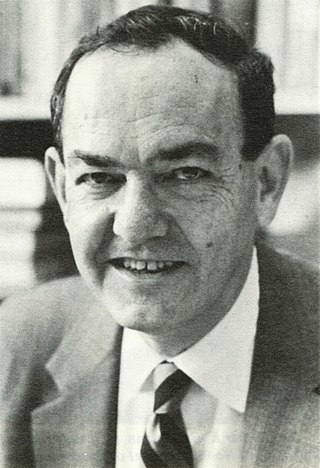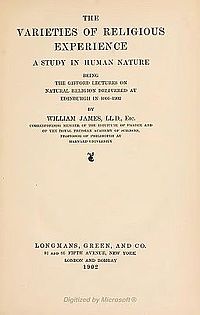
Bertrand Arthur William Russell, 3rd Earl Russell, was a British mathematician, philosopher, logician, and public intellectual. He had a considerable influence on mathematics, logic, set theory, linguistics, artificial intelligence, cognitive science, computer science and various areas of analytic philosophy, especially philosophy of mathematics, philosophy of language, epistemology, and metaphysics.

In philosophy, empiricism is an epistemological theory that holds that knowledge or justification comes only or primarily from sensory experience. It is one of several views within epistemology, along with rationalism and skepticism. Empiricism emphasizes the central role of empirical evidence in the formation of ideas, rather than innate ideas or traditions. However, empiricists may argue that traditions arise due to relations of previous sensory experiences.

Herbert Alexander Simon was an American political scientist, with a Ph.D. in political science, whose work also influenced the fields of computer science, economics, and cognitive psychology. His primary research interest was decision-making within organizations and he is best known for the theories of "bounded rationality" and "satisficing". He received the Nobel Memorial Prize in Economic Sciences in 1978 and the Turing Award in computer science in 1975. His research was noted for its interdisciplinary nature and spanned across the fields of cognitive science, computer science, public administration, management, and political science. He was at Carnegie Mellon University for most of his career, from 1949 to 2001, where he helped found the Carnegie Mellon School of Computer Science, one of the first such departments in the world.
Neutral monism is an umbrella term for a class of metaphysical theories in the philosophy of mind. These theories reject the dichotomy of mind and matter, believing the fundamental nature of reality to be neither mental nor physical; in other words it is "neutral".

The philosophy of perception is concerned with the nature of perceptual experience and the status of perceptual data, in particular how they relate to beliefs about, or knowledge of, the world. Any explicit account of perception requires a commitment to one of a variety of ontological or metaphysical views. Philosophers distinguish internalist accounts, which assume that perceptions of objects, and knowledge or beliefs about them, are aspects of an individual's mind, and externalist accounts, which state that they constitute real aspects of the world external to the individual. The position of naïve realism—the 'everyday' impression of physical objects constituting what is perceived—is to some extent contradicted by the occurrence of perceptual illusions and hallucinations and the relativity of perceptual experience as well as certain insights in science. Realist conceptions include phenomenalism and direct and indirect realism. Anti-realist conceptions include idealism and skepticism. Recent philosophical work have expanded on the philosophical features of perception by going beyond the single paradigm of vision.

Hilary Whitehall Putnam was an American philosopher, mathematician, and computer scientist, and a major figure in analytic philosophy in the second half of the 20th century. He made significant contributions to philosophy of mind, philosophy of language, philosophy of mathematics, and philosophy of science. Outside philosophy, Putnam contributed to mathematics and computer science. Together with Martin Davis he developed the Davis–Putnam algorithm for the Boolean satisfiability problem and he helped demonstrate the unsolvability of Hilbert's tenth problem.

Edward Lee Thorndike was an American psychologist who spent nearly his entire career at Teachers College, Columbia University. His work on comparative psychology and the learning process led to the theory of connectionism and helped lay the scientific foundation for educational psychology. He also worked on solving industrial problems, such as employee exams and testing. He was a member of the board of the Psychological Corporation and served as president of the American Psychological Association in 1912. A Review of General Psychology survey, published in 2002, ranked Thorndike as the ninth-most cited psychologist of the 20th century. Edward Thorndike had a powerful impact on reinforcement theory and behavior analysis, providing the basic framework for empirical laws in behavior psychology with his law of effect. Through his contributions to the behavioral psychology field came his major impacts on education, where the law of effect has great influence in the classroom.

Pragmatism is a philosophical tradition that considers words and thought as tools and instruments for prediction, problem solving, and action, and rejects the idea that the function of thought is to describe, represent, or mirror reality. Pragmatists contend that most philosophical topics—such as the nature of knowledge, language, concepts, meaning, belief, and science—are all best viewed in terms of their practical uses and successes.

John Henry McDowell, FBA is a South African philosopher, formerly a fellow of University College, Oxford, and now university professor at the University of Pittsburgh. Although he has written on metaphysics, epistemology, ancient philosophy, nature, and meta-ethics, McDowell's most influential work has been in the philosophy of mind and philosophy of language. McDowell was one of three recipients of the 2010 Andrew W. Mellon Foundation's Distinguished Achievement Award, and is a Fellow of both the American Academy of Arts & Sciences and the British Academy.
Philosophy of psychology is concerned with the philosophical foundations of the study of psychology. It deals with both epistemological and ontological issues and shares interests with other fields, including philosophy of mind and theoretical psychology. Philosophical and theoretical psychology are intimately tied and are therefore sometimes used interchangeably or used together. However, philosophy of psychology relies more on debates general to philosophy and on philosophical methods, whereas theoretical psychology draws on multiple areas.
Psychological projection is a defence mechanism of alterity concerning "inside" content mistaken to be coming from the "outside" Other. It forms the basis of empathy by the projection of personal experiences to understand someone else's subjective world. In its malignant forms, it is a defense mechanism in which the ego defends itself against disowned and highly negative parts of the self by denying their existence in themselves and attributing them to others, breeding misunderstanding and causing untold interpersonal damage. A bully may project their own feelings of vulnerability onto the target, or a person who is confused may project feelings of confusion and inadequacy onto other people. Projection incorporates blame shifting and can manifest as shame dumping. Projection has been described as an early phase of introjection.
Richard Arthur Wollheim was a British philosopher noted for original work on mind and emotions, especially as related to the visual arts, specifically, painting. Wollheim served as the president of the British Society of Aesthetics from 1992 onwards until his death in 2003.

The Varieties of Religious Experience: A Study in Human Nature is a book by Harvard University psychologist and philosopher William James. It comprises his edited Gifford Lectures on natural theology, which were delivered at the University of Edinburgh, Scotland between 1901 and 1902. The lectures concerned the psychological study of individual private religious experiences and mysticism, and used a range of examples to identify commonalities in religious experiences across traditions.

Robert Sessions Woodworth was an American academic psychologist and the creator of the personality test which bears his name. A graduate of Harvard and Columbia, he studied under William James along with other prominent psychologists as Leta Stetter Hollingworth, James Rowland Angell, and Edward Thorndike. His textbook Psychology: A study of mental life, which appeared first in 1921, went through many editions and was the first introduction to psychology for generations of undergraduate students. His 1938 textbook of experimental psychology was scarcely less influential, especially in the 1954 second edition, written with Harold H. Schlosberg. He is known for introducing the Stimulus-Organism-Response (S-O-R) formula of behavior. He was elected to the American Academy of Arts and Sciences in 1935 and the American Philosophical Society in 1936. A Review of General Psychology survey, published in 2002, ranked Woodworth as the 88th most cited psychologist of the 20th century, tied with John Garcia, James J. Gibson, David Rumelhart, Louis Leon Thurstone, and Margaret Floy Washburn.

Ralph Barton Perry was an American philosopher. He was a strident moral idealist who stated in 1909 that, to him, idealism meant "to interpret life consistently with ethical, scientific, and metaphysical truth." Perry's viewpoints on religion stressed the notion that religious thinking possessed legitimacy should it exist within a framework accepting of human reason and social progress.
In semantics, semiotics, philosophy of language, metaphysics, and metasemantics, meaning "is a relationship between two sorts of things: signs and the kinds of things they intend, express, or signify".

In analytic philosophy, philosophy of language investigates the nature of language and the relations between language, language users, and the world. Investigations may include inquiry into the nature of meaning, intentionality, reference, the constitution of sentences, concepts, learning, and thought.

Susan Goldin-Meadow is the Beardsley Ruml Distinguished Service Professor in the Departments of Psychology, Comparative Human Development, the college, and the Committee on Education at the University of Chicago. She is the principal investigator of a 10-year program project grant, funded by the National Institute of Child Health and Human Development, designed to explore the impact of environmental and biological variation on language growth. She is also a co-PI of the Spatial Intelligence and Learning Center (SILC), one of six Science of Learning Centers funded by the National Science Foundation to explore learning in an interdisciplinary framework with an eye toward theory and application. She is the founding editor of Language Learning and Development, the official journal of the Society for Language Development. She was President of the International Society for Gesture Studies from 2007–2012.

Marc Bekoff is an American biologist, ethologist, behavioural ecologist and writer. He was a professor of Ecology and Evolutionary Biology at the University of Colorado Boulder for 32 years. He cofounded the Jane Goodall Institute of Ethologists for the Ethical Treatment of Animals, and he is Professor Emeritus of Ecology and Evolutionary Biology at the University of Colorado Boulder.

Philosophical Essays on Freud is a 1982 anthology of articles about Sigmund Freud and psychoanalysis edited by the philosophers Richard Wollheim and James Hopkins. Published by Cambridge University Press, it includes an introduction from Hopkins and an essay from Wollheim, as well as selections from philosophers such as Ludwig Wittgenstein, Clark Glymour, Adam Morton, Stuart Hampshire, Brian O'Shaughnessy, Jean-Paul Sartre, Thomas Nagel, and Donald Davidson. The essays deal with philosophical questions raised by the work of Freud, including topics such as materialism, intentionality, and theories of the self's structure. They represent a range of different viewpoints, most of them from within the tradition of analytic philosophy. The book received a mixture of positive, mixed, and negative reviews. Commentators found the contributions included in the book to be of uneven value.













